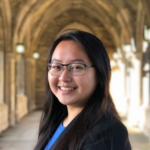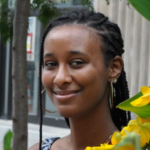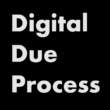The Digital Due Process Clinic provides high-quality, pro bono services to people struggling with automated scoring systems. Based at Cornell University, the program brings together multidisciplinary teams of students who work on real-world problems under the supervision of experienced faculty.
Why Digital Due Process?

Automated scoring systems play an increasingly important role in ordering our lives. Obtaining a loan, renting an apartment, ranking in web search results, or making the shortlist for a job: all of these activities depend on judgments generated through a range of computational techniques like data analytics and predictive algorithms.
Problems do occur when things go wrong and people feel misrepresented by these systems. For example, what recourse does a person have when:
- their credit line is limited because they used their card to pay for marriage counseling (FTC v CompuCredit Corp Complaint, p. 34-35);
- a Google search reveals a range of compromising photos published by a vengeful ex (“The Disturbing Story Behind NYC’s Revenge Porn Perpetrators,” NYPost, Feb 25, 2019);
- an essay-scoring engine penalizes the use of African-American vernacular (“Flawed Algorithms Are Grading Millions of Students’ Essays,” Motherboard, Aug 20, 2019);
- a workplace analytics system flags their mental health (“Your work emails contain subtle clues about your emotional state,” Quartz, Sep. 24, 2019)?
In all these cases, the affected parties struggle to obtain what legal scholars call “due process,” i.e. the right not to be judged arbitrarily and to appeal an automated judgment. When systems are complex, proprietary, and opaque and legal recourse is impractical or limited, a special kind of expertise is needed to represent one’s interests.
The Digital Due Process Clinic aims to fill this gap by gathering a multidisciplinary group of students under the supervision of experienced faculty and engaging them in research, advocacy, and outreach, using the tools of humanists, technologists, and social scientists.
The Team

Amelie Lange
Visiting Ph.D. Researcher
Elisabeth Pan
Student Researcher
Jai Vipra
Graduate Research Assistant
Malte Ziewitz
Director; PI
Marc Aidinoff
Postdoctoral Associate
Miriam Fahimi
Research Fellow(non-resident)

Nicole Fan
Student Researcher
Rachel Sulciner
Student ResearcherThe 2022 Cohort: Humans of AI

Vicki Xie
Student Researcher
Joanna Moon
Student Researcher
Kerry Wong
Student Researcher
Kuunemuebari Mini
Student Researcher
Nabiha Qureshi
Student ResearcherThe 2021 Cohort: Everyday Ecologies of Scoring

Carson Crane
Student Researcher
Christopher Chandra
Student Researcher
Grace Cala
Student Researcher
Hannah Dominguez
Student Researcher
Michael Tyrrell
Summer Research Fellow
Sam Tesfaye
Student Researcher
Valerie Kong
Student Researcher
Stephen Yang
Student ResearcherThe 2020 Cohort: Documenting the Lived Experiences of Data Subjects

Amy Eng
Student Researcher
Annika Pinch
Student Researcher
Cassidy McGovern
Student Researcher
Ciarra Lee
Student Researcher
Deana Gonzales
Student Researcher
Emma Li
Student Researcher
Kyra Wisniewski
Student Researcher
Sterling Williams-Ceci
Student ResearcherInterested in joining us? Applications for the spring cohort usually open in October. If you are thinking about a summer project or an independent study, please send a one-page outline to dueprocess@cornell.edu.
Alumni
Chris Hesselbein, Clinical Research Fellow, 2021-2023 (now: Politecnico di Milano)
Carson Crane, Undergraduate RA, 2021–2022 (now: University of Minnesota School of Public Health)
Yue Zhao, Graduate Summer Fellow, 2021
Ngai Keung Chan, Graduate Summer Fellow, 2020 (now: Chinese University of Hong Kong)
Ranjit Singh, Clinical Research Fellow, 2019–2020 (now: Data & Society Research Institute)
Kyla Chasalow, Undergraduate RA, 2019–2020 (now: Oxford M.Sc. Statistics)
August Chang, Student Researcher, 2020 (now: Chicago M.A. Anthropology)
Divyansha Sehgal, Student Researcher, 2019 (now: Deutsche Bank)
Learning objectives
The Digital Due Process Clinic is a setting in which students:
- assume primary responsibility for deliverables and client matters
- provide excellent support and representation to those affected by automated scoring systems
- develop key digital advocacy skills, including interviewing, counseling, fact investigation, drafting, negotiation, and, in some cases, technological support
- engage in reflective practice, showing the ability to evaluate past performances and continually improve future performances through planning
- collaborate with other clinic students, clinic supervisors, and community partners
Funding
The Digital Due Process Clinic is generously supported by a National Science Foundation CAREER award and the Department of Science & Technology Studies at Cornell University.
